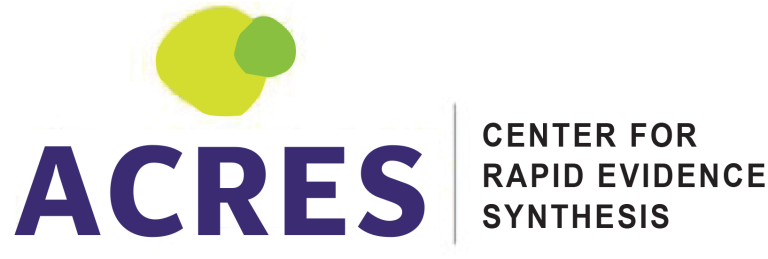Embedding rapid reviews in health policy and systems decision-making: Impacts and lessons learned from four low- and middle-income countries
Demand for rapid evidence-based syntheses to inform health policy and systems decision-making has increased worldwide, including in low- and middle-income countries (LMICs). To promote use of rapid syntheses in LMICs, the WHO’s Alliance for Health Policy and Systems Research (AHPSR) created the Embedding Rapid Reviews in Health Systems Decision-Making (ERA) Initiative. Following a call for […]
Policymaker experiences with rapid response briefs to address health-system and technology questions in Uganda
Health service and systems researchers have developed knowledge translation strategies to facilitate the use of reliable evidence for policy, including rapid response briefs as timely and responsive tools supporting decision making. However, little is known about users’ experience with these newer formats for presenting evidence. We sought to explore Ugandan policymakers’ experience with rapid response […]
Beyond the metrics of health research performance in African countries
While it is important to be able to evaluate and measure a country’s performance in health research (HR), HR systems are complex and multifaceted in nature. As such, attempts at measurement can suffer several limitations which risk leading to inadequate indices or representations. In this study, we critically review common indicators of HR capacity and […]
A Process Evaluation to Assess Contextual Factors Associated With the Uptake of a Rapid Response Service to Support Health Systems’ Decision-Making in Uganda
Although proven feasible, rapid response services (RRSs) to support urgent decision and policymaking are still a fairly new and innovative strategy in several health systems, more especially in low-income countries. There are several information gaps about these RRSs that exist including the factors that make them work in different contexts and in addition what affects […]
Vulnerability of populations to malaria after indoor residual spraying is withdrawn from areas where its use has previously been sustained: a protocol for a systematic review
With its proven effectiveness, indoor residual spraying (IRS) as a malaria vector control strategy forms one of the reliable vector control strategies, especially when at least 80% of the population is covered. However, to date, there is uncertainty regarding the consequences of IRS withdrawal on malaria control when there is no clear exit strategy in […]
The influence of local ownership and politics of the use of evaluations in policy making
The capacity of policy makers to use evidence was raised, and that policy makers’ background influences their ability to interpret evidence. Policymakers should understand the value of evidence in policy decisions and how to interpret it to motivate them to use the evidence. The president of Uganda is a leading proponent of public sector reforms […]


